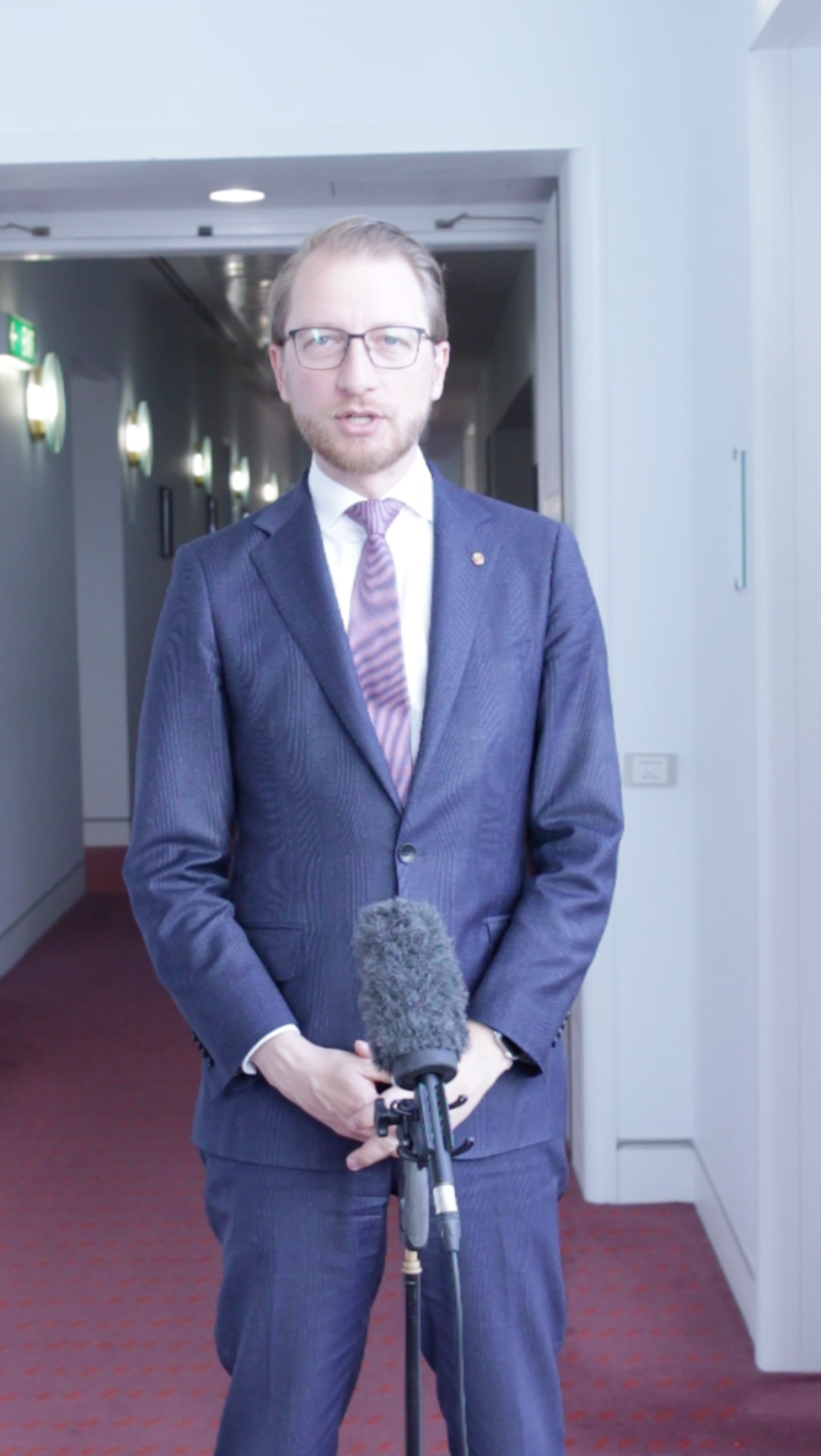Media
|
Transcripts
November 27, 2025

TRANSCRIPT
DOORSTOP
AUSTRALIAN PARLIAMENT HOUSE
Thursday, 27 November 2025
Topics: Jim Chalmers reckless spending is driving up inflation, EPBC
E&OE…………………………………………………………………………………………
SENATOR JAMES PATERSON: Good morning. The Treasurer Jim Chalmers looked more like the Iraqi Information Minister this morning when he tried to claim that inflation is not rising, it's in fact flat. But all Australians know in fact inflation is up. Jim Chalmers is responsible for that inflation rising because he's the Treasurer. He liked to take credit for inflation when it was falling, but now that it's rising, he should take credit for it too. And you don't have to take my word for it any longer. Penelope Smith, a senior RBA official, gave a very important speech yesterday where she said the neutral rate of cash, that is the interest rate set by the RBA, now has to be higher because of growing fiscal deficits. And Jonathan Kearns, a Challenger Chief Economist, who's previously a senior RBA official, said that fiscal stimulus had been driving up interest rates. So the reason why Australian mortgage holders can no longer look forward to any rate relief and may in fact face higher interest rates over the next year is because Labor can't manage money. A $42 billion forecast budget deficit this year is just driving up inflation, driving up interest rates and driving up the cost of living.
JOURNALIST: James, the Prime Minister's about to hold a press conference, we believe, on a deal on environment laws with the Greens. What does that say that the Coalition's been cut out?
SENATOR JAMES PATERSON: Well, we've been engaging constructively in a bipartisan way with the government in the national interest, and we have said all along that we would be willing to vote for environmental law reform that actually improved the approval process and protected the environment. But the very major concerns that we and the business community held about this legislation and the reasonable suggestions we put forward have to be addressed before we could vote for legislation. So I don't want to preempt any announcements today, but unless the government has moved substantially towards our position on those unresolved issues that the business community and others have raised, then we wouldn't be in a position to support the legislation.
JOURNALIST: Is a deal with the Greens potentially damaging for business or farmers?
SENATOR JAMES PATERSON: Well, it will be on the government's shoulders if they pass legislation with the Greens that damages our economy, that damages our mining industry, that damages farming, that damages industry. If this government chooses to do a deal with the Greens when a deal was available with the Coalition that would have supported business and industry, that would have allowed faster approvals, then that is on them.
JOURNALIST: Ted O'Brien did a speech yesterday, some criticism that the Coalition hasn't started rolling out policies yet. Do you hope the economic team will have policies from the first quarter of next year?
SENATOR JAMES PATERSON: Frankly I think some false tests are being set for us by saying that six months after our worst ever election defeat we have to have a comprehensive set of policies for the next election, which is two and a half years away. We're going to take the time to get this right. We are not going to rush this, we're going to go through a proper process. We've already made some commitments, some announcements, and many more will come over the next two and a half years in a proper orderly way.
JOURNALIST: Energy bill, bill rebates, Chalmers didn't rule that out yesterday. What's your position on energy bill rebates?
SENATOR JAMES PATERSON: Well, Jim Chalmers has got himself into a terrible problem. The withdrawal of energy rebates is one of the reasons why inflation has spiked to be so high again. But fundamentally, it's about a failure of energy policy, which he is trying to hide from the Australian people. But even he's admitted that it's not sustainable for these energy rebates to stay in place forever. The government can't subsidise and pay people's energy bills in perpetuity. So at some point he's going to turn off the tap, and Australians are going to feel the full extent of the energy policy failures on this government's watch.
ENDS